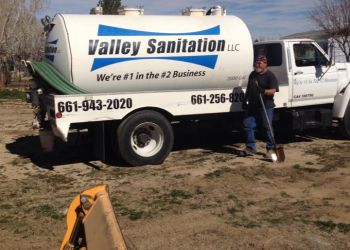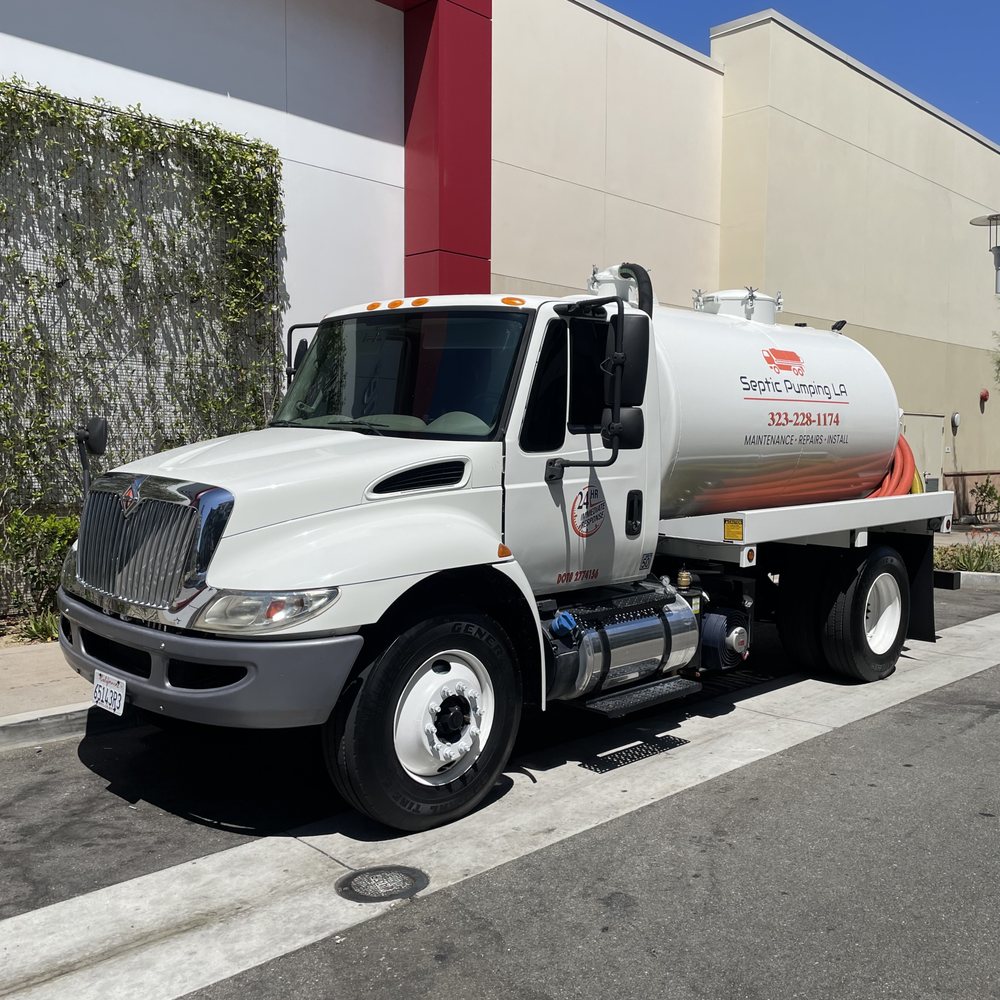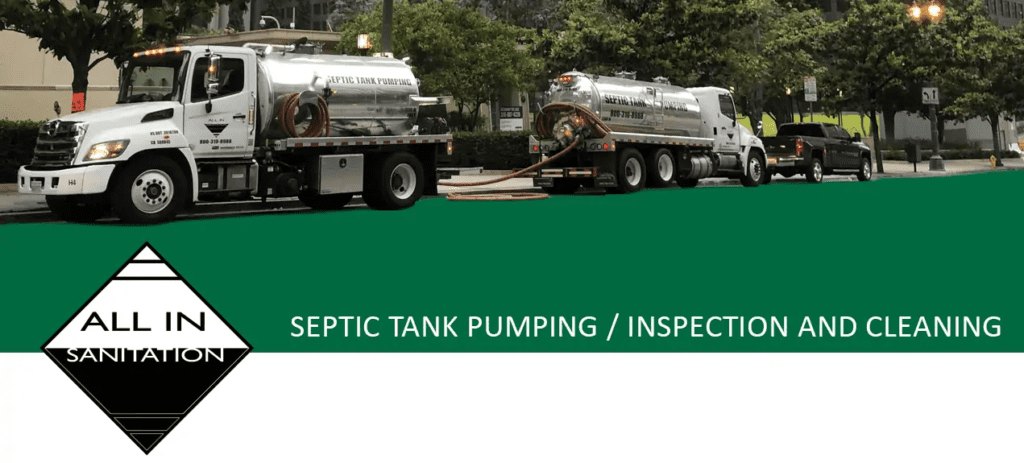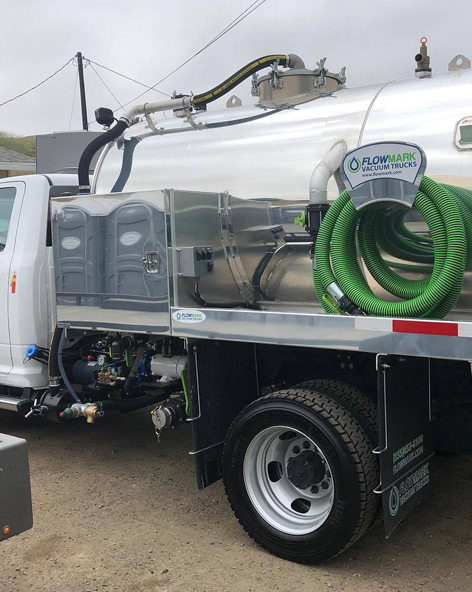Imagine living in a home with a septic tank, where you never have to worry about unpleasant odors or backups. Introducing “Septic Tank Cleaning in Lancaster,” the ultimate solution to maintaining a clean and flawless septic system. This innovative product offers a professional cleaning service specifically designed for residents in Lancaster, ensuring that your septic tank remains in pristine condition. With our expert team and state-of-the-art equipment, you can bid farewell to septic troubles and enjoy a worry-free living environment.
The Importance of Regular Septic Tank Cleaning
Regular septic tank cleaning is crucial for several reasons. First and foremost, it helps prevent backups and costly repairs. When a septic tank becomes full, it can lead to sewage backups in your home or yard, resulting in a messy and unpleasant situation. Regular cleaning ensures that the tank is emptied and maintained at a proper capacity, reducing the risk of backups and the need for expensive repairs.
Furthermore, regular septic tank cleaning helps maintain a healthy environment. A full septic tank can release harmful bacteria and pollutants into the soil, which can contaminate groundwater and nearby bodies of water. This poses a risk to both the environment and the health of those living in the area. By regularly cleaning your septic tank, you are effectively managing waste and minimizing the potential for environmental contamination.
Lastly, regular septic tank cleaning extends the lifespan of the septic system. Over time, solid waste accumulates in the tank, forming a layer of sludge at the bottom. If this sludge is not regularly removed, it can build up and cause blockages in the system. These blockages can lead to malfunctions and ultimately shorten the lifespan of the septic system. By cleaning the tank regularly, you are reducing the likelihood of blockages and maximizing the longevity of your septic system.
Signs that Your Septic Tank Needs Cleaning
It is important to be aware of the signs that indicate your septic tank needs cleaning. Foul odors in your yard or home are one such sign. If you notice a distinct and unpleasant smell of sewage in your surroundings, it is likely that your septic tank is full and in need of cleaning. This odor can be particularly strong outside near the drain field or in the basement if you have a basement-level septic tank.
Another sign that your septic tank needs cleaning is slow drains or toilets. If you notice that water is draining slowly from sinks, showers, or toilets, it could be a sign that your septic tank is full and needs to be emptied. This slow drainage is a result of the septic tank being unable to properly filter and drain wastewater due to excessive buildup of solids and sludge.
Additionally, pooling water or lush vegetation near the drain field can indicate a need for septic tank cleaning. When a septic tank is full or experiencing issues, water may not be able to properly disperse into the soil. As a result, you may notice water pooling around the drain field or see an area of unusually green and lush vegetation. These signs suggest that the septic system is overloaded and needs to be cleaned to restore proper functionality.

Choosing the Right Septic Tank Cleaning Service
When it comes to septic tank cleaning, it is important to choose the right service provider. Here are a few factors to consider when making your decision:
-
Licensed and Insured Professionals: It is crucial to hire a septic tank cleaning service that is licensed and insured. This ensures that they have met the necessary qualifications and have the knowledge and skills to properly clean and maintain your septic system. Insurance coverage provides protection in the event of any accidents or damages that may occur during the cleaning process.
-
Experience and Expertise: Look for a septic tank cleaning service with years of experience in the industry. Experience indicates that they have dealt with a variety of septic system issues and are knowledgeable in providing effective solutions. Additionally, expertise in septic system maintenance and repair ensures that the service provider is capable of identifying and addressing any potential problems with your septic tank.
-
Positive Customer Reviews: Read customer reviews and testimonials to gauge the satisfaction levels of previous clients. Positive reviews are a good indication of a reputable and reliable septic tank cleaning service. Pay attention to feedback regarding the professionalism, timeliness, and quality of work provided by the company.
By considering these factors, you can make an informed decision and choose a septic tank cleaning service that meets your needs and provides high-quality service.
Steps Involved in Septic Tank Cleaning
Septic tank cleaning typically involves several steps to ensure a thorough and effective cleaning process.
-
Locating and Exposing the Tank: The first step in cleaning a septic tank is locating and exposing the access point to the tank. This is typically done by digging up the area around the tank’s lid or access port. It is important to exercise caution during this step to avoid damaging the tank or any underground utilities.
-
Pumping out the Solids and Liquids: Once the tank is exposed, a professional septic tank cleaner will use a specialized vacuum truck to pump out the contents of the tank. This includes both the solid waste (sludge) and the liquids (effluent). The vacuum truck is equipped with a large hose that is inserted into the tank to suction out the waste.
-
Inspecting the Tank for any Issues: After the pumping process is complete, the septic tank should be inspected for any potential issues. This includes checking for cracks, leaks, or damage to the tank itself, as well as inspecting the inlet and outlet pipes to ensure they are properly connected and functioning.
By following these steps, a septic tank cleaning service can effectively remove accumulated waste from the tank and identify any potential problems that may require additional attention.

Frequency of Septic Tank Cleaning
The frequency of septic tank cleaning varies depending on several factors. It is important to consider household size, amount of wastewater generated, and the type of septic system installed when determining how often your tank should be cleaned.
-
Household Size: The number of occupants in your home directly affects the amount of wastewater generated and, subsequently, the rate at which your septic tank fills up. Larger households with more people will naturally produce more wastewater and may require more frequent cleaning.
-
Amount of Wastewater Generated: Factors such as water usage habits and the presence of water-intensive appliances (such as washing machines or dishwashers) can impact the amount of wastewater generated. If your household produces a high volume of wastewater, it may be necessary to clean your septic tank more frequently.
-
Type of Septic System Installed: The type of septic system you have can also influence the cleaning frequency. Different types of septic systems have varying capacities and treatment processes, which can affect how quickly the tank fills up. Consult with a septic tank professional to determine the appropriate cleaning schedule for your specific system.
In general, it is recommended to have your septic tank cleaned every 3-5 years. However, individual circumstances may warrant more frequent cleanings. Consulting with a septic tank professional will provide you with the most accurate recommendation based on your specific circumstances.
DIY Septic Tank Cleaning vs. Professional Services
While it may be tempting to attempt septic tank cleaning on your own, it is generally advisable to hire professional services for this task. Here are some advantages of hiring professionals:
-
Experience and Expertise: Professional septic tank cleaners have the knowledge and experience required to effectively clean and maintain your septic system. They are familiar with the complexities and intricacies of septic systems, allowing them to identify and address any potential issues during the cleaning process.
-
Proper Equipment and Techniques: Septic tank cleaning requires specialized equipment and techniques to ensure a thorough and safe cleaning process. Professional septic tank cleaners have access to high-power vacuum trucks and other necessary tools to complete the job efficiently and effectively.
-
Waste Disposal Compliance: Septic tank waste must be properly disposed of in accordance with local regulations. Professional septic tank cleaning services are well-versed in these regulations and have the necessary permits and knowledge to dispose of waste responsibly.
On the other hand, attempting DIY septic tank cleaning can pose potential risks:
-
Lack of Experience: Without proper knowledge and experience, DIY septic tank cleaning can lead to incomplete cleaning or even further damage to the septic system. Inadequate cleaning can result in persistent issues and costly repairs down the line.
-
Health and Safety Hazards: Septic tank contents can contain harmful bacteria and pathogens that pose health risks. Mishandling these substances can result in exposure and potential illness. Professional septic tank cleaners are trained in safely handling and disposing of these materials.
-
Inadequate Equipment: DIY cleaning methods often lack the necessary equipment to thoroughly clean the septic tank. This can result in leaving behind sludge or other debris, further hindering the system’s performance.
While DIY options may appear cost-effective on the surface, it is important to consider the long-term implications and potential risks. Hiring professional septic tank cleaning services ensures a thorough and safe cleaning process, minimizing the potential for future issues and costly repairs.

Tips for Maintaining a Healthy Septic Tank
In addition to regular cleaning, there are several steps you can take to maintain a healthy septic tank:
-
Avoid Flushing Non-Biodegradable Items: Non-biodegradable items, such as sanitary products, wipes, and other personal care items, should never be flushed down the toilet. These items can clog the pipes and cause blockages in your septic system. Dispose of these items in the trash instead.
-
Conserve Water Usage: Excessive water usage can overload the septic system and lead to increased frequency of cleanings. Taking steps to conserve water, such as fixing leaky faucets, using water-efficient appliances, and spreading out laundry loads throughout the week, can help reduce the strain on your septic tank.
-
Regularly Inspect the Tank and Drainage Area: Periodic inspections of your septic tank and drain field can help catch any potential issues before they escalate. Look for signs of leaks, cracks, or damage to the tank, as well as any unusual pooling of water or vegetation around the drain field. Addressing these issues early on can help prevent further damage to your septic system.
By following these tips, you can help maintain the health and functionality of your septic tank, prolonging its lifespan and reducing the likelihood of costly repairs.
Common Mistakes to Avoid with Septic Tank Cleaning
To ensure effective septic tank cleaning, it is important to avoid the following common mistakes:
-
Neglecting Regular Maintenance: Failing to clean your septic tank on a regular basis can lead to costly repairs and system malfunctions. Regular maintenance is essential to prevent backups and maintain the health and longevity of your septic system.
-
Overloading the System with Excessive Water Usage: Excessive water usage can overwhelm your septic system and lead to more frequent cleanings. Avoid activities such as doing multiple loads of laundry in a short period or taking long showers, as these can strain the system.
-
Ignoring Warning Signs of Potential Issues: Pay attention to any unusual odors, slow drains, or water pooling around the drain field. These are signs that your septic tank may need cleaning or that there may be other underlying issues that require attention.
By avoiding these common mistakes, you can help ensure that your septic tank cleaning is effective and that your system remains in good working condition.

Septic Tank Cleaning Regulations in Lancaster
Before scheduling a septic tank cleaning in Lancaster, it is important to be aware of any local ordinances and codes that govern septic system maintenance. These regulations may include requirements for permits, inspections, and proper waste disposal. Familiarize yourself with these regulations to ensure compliance and avoid any potential penalties.
Permits and inspections may be required before, during, or after the septic tank cleaning process. These inspections help ensure that the septic system is functioning properly and that waste is being disposed of in accordance with the regulations. Failure to comply with these regulations can result in fines or other penalties.
Proper waste disposal guidelines are also a key aspect of septic tank cleaning regulations. Waste must be disposed of in an environmentally responsible manner to prevent contamination of water sources and protect public health. Professional septic tank cleaning services typically have knowledge of these guidelines and ensure proper waste disposal as part of their service.
Be sure to consult with local authorities or qualified septic tank professionals to understand the specific regulations and requirements in Lancaster before proceeding with septic tank cleaning.
Cost of Septic Tank Cleaning in Lancaster
The cost of septic tank cleaning in Lancaster can vary depending on several factors. Here are some factors that can affect the cost:
-
Tank Size: Larger septic tanks require more time and effort to clean, which can result in higher costs. The size of your septic tank will be a major determinant in the overall cost of cleaning.
-
Accessibility: The ease of accessing your septic tank can also impact the cost. If the tank is buried deep underground or located in a hard-to-reach area, additional labor and equipment may be required, thereby increasing the cost.
-
Distance to Disposal Site: The distance between your property and the disposal site can impact the cost of septic tank cleaning. Longer distances can result in increased transportation costs for the waste.
It is recommended to request quotes from multiple companies to get an accurate estimate of the cost of septic tank cleaning in Lancaster. Be sure to inquire about any additional fees or charges that may apply to your specific situation.
In conclusion, regular septic tank cleaning is essential for preventing backups, maintaining a healthy environment, and extending the lifespan of the septic system. Be mindful of the signs that indicate your septic tank needs cleaning and choose a reputable and reliable septic tank cleaning service. Follow the recommended steps for cleaning and consider the frequency that suits your household’s needs. While it may be tempting to attempt DIY cleaning, hiring professional services offers several advantages and minimizes potential risks. Additionally, implementing tips for maintaining a healthy septic tank and avoiding common mistakes can help ensure the proper functioning of your septic system. Familiarize yourself with the local regulations in Lancaster and understand the cost factors involved in septic tank cleaning. By adhering to these guidelines, you can effectively maintain your septic tank and enjoy a well-functioning septic system.

